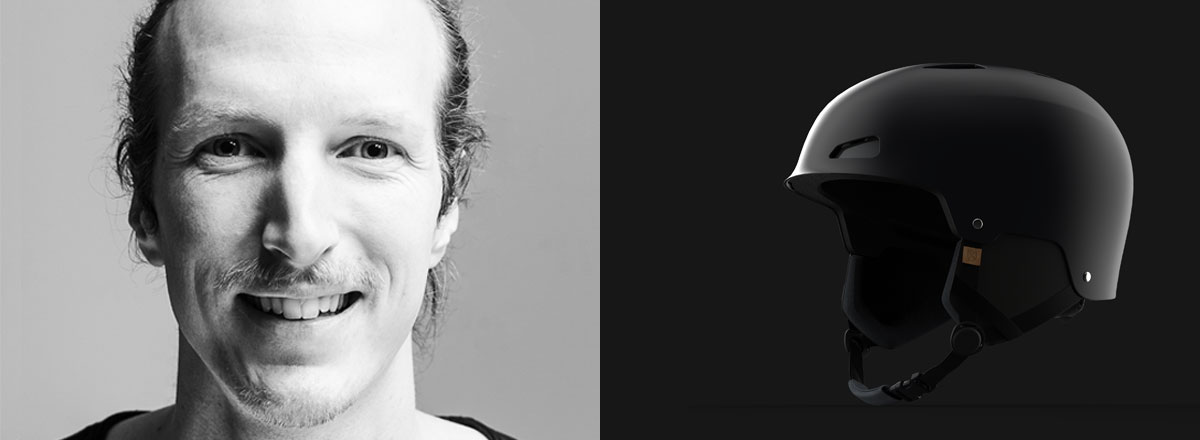A sustainable helmet in a double sense

What happens when you pair a fanatic snowboarder with KTH? In Rickard Croy's case, you get a helmet for extreme riders.
Your company "Lokatt" is supported by KTH Innovation and has received funding from Vinnova in the call for "Innovative startups". What is special about your helmet?
- The sustainability mindset permeates everything we do, but the innovation is primarily the material. Lokatt is the first helmet made of bio-based materials without compromising on its performance. If you ride at a high level, you don’t compromise on safety. But a sustainable mindset is about so much more than just material choice. We also look at the possibility of having a "return system" for the helmet, which gives a discount on the next helmet purchase when you return the old one – and we recover the materials. We do all of this to reduce the negative impact on our environment that material consumption leads to.
Why an extreme helmet?
- We were a group of students at KTH who were curious about what new, fossil-free materials could achieve. For me, it is important to work with something that goes in line with my values. And with a background in the ski and snowboard world, outdoor gadgets are close to my heart. Skiers at this level are an eco-friendly customer group, and the outdoor industry is good at sustainability, with sustainable textiles and sustainable production. But no one makes eco-friendly protective equipment, mostly because it has not been possible before. But with new high-performance biomaterials, new opportunities have appeared.
You have over 3000 followers on Instagram who follow the project. When will we see the helmet in stores?
- We hope to reach the market in the winter of 2019/20.
How much KTH is in your company?
- All of the company’s founders have a master's degree in Innovation Management and Product Development from the Department of Machine Design, KTH. My main gains from my education were a mindset to always look for these kinds of ideas, the tools for evaluating them, and a belief that anything is possible.
Text: Anna Gullers, translated by Ulrika Georgsson
